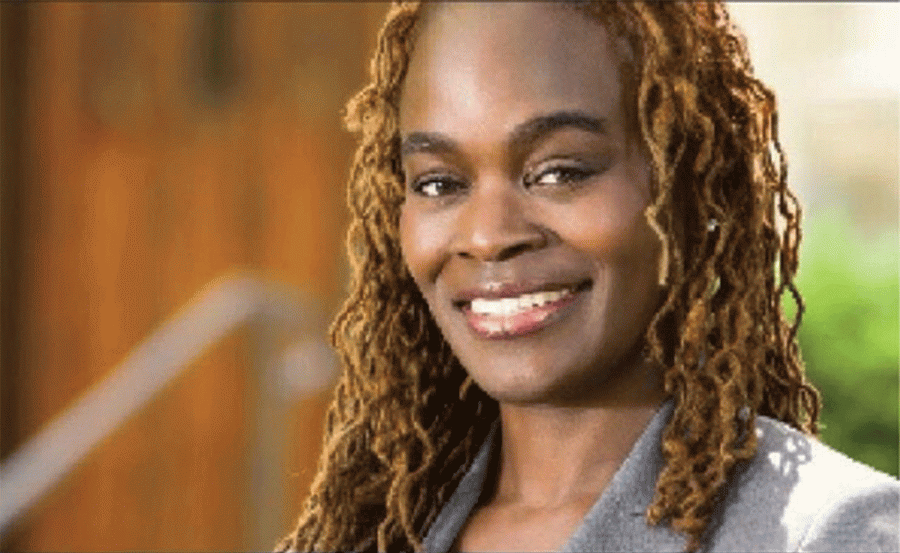Students of Color and Mental Health
Dr. Breland-Noble spoke at Colgate about mental health, particularly as it applies to students of color who have felt isolated on campus.
Director of the African American Knowledge Optimized for Mindfully Healthy Adolescents (AAKOMA) Project and Associate Professor of Psychiatry at Georgetown University Medical Center Dr. Alfiee M. Breland-Noble gave a talk at the African, Latin, Asian and Native American (ALANA) Cultural Center entitled, “College, Stress and #Beychella” on Wednesday, April 18.
Breland-Noble began her talk by asking students to think of a time that they felt isolated on campus. Her lecture, primarily directed at students of color at Colgate, did not ask whether or not these students have ever felt isolated during their time at Colgate. Rather, it was simply assumed that all students have felt this way at one time or another. None of the students in the room refuted this feeling of isolation. And so, Breland-Noble asked students to tap into memory of isolation and put it on a metaphorical shelf.
Breland-Noble brought up a statistic that, on average, 33 percent of all college students feel stressed. Breaking this statistic down further into racial categories, the study found that 33 percent of white students felt stressed. However, the study found that only 27 percent of black college students reported experiencing stress. Rather than this statistic representing that there truly is a lower proportion of black college students that feel stressed, Breland-Noble pointed to this as a representation of how black American culture can often stigmatize mental health issues. Breland-Noble stated clearly and strongly though, that “mental health is not a white person problem.”
Breland-Noble asked students to say the words that came to mind when they thought about “people of color and stress.” In the back of the room one student said, “toxic,” followed by, “common,” “stressed” and “self-destructive.” Another study Breland-Noble referenced was one in which it was found that 12 percent of all college students do not have any resources to seek mental health help.
As part of her visit to Colgate, Breland-Noble had the opportunity to meet with members of the faculty. The students in the audience at the lecture were eager to hear her opinions and thoughts concerning the faculty members. In her assessment, the faculty at Colgate seemed genuinely willing to improve the experience of students of color as well as promote their success, though without a good understanding of how this could be accomplished. As Breland-Noble pointed out, for most people in positions of privilege, whether due to race or gender, an instinctual method of understanding is through relating your experiences to someone else’s. However, this is not always the best method when the experiences of someone in a position of privilege may not have any real point of reference in their own experience to the experiences of someone who has truly been oppressed or isolated in a certain way.
Instead of trying to understand another’s experiences of oppression or isolation within the context of your own life experiences, Breland-Noble recommends simply listening to others.
This lecture also mentioned a key insufficiency of the Colgate campus: there is clear lack of individuals of color working at the university’s Counseling Center. This is a need not only for the students of color on campus, but also for the health of the student community as a whole. The hiring of multiple people of color to the Counseling Center would be a sign that the university recognizes the mental health needs of all students on campus.
“I thought the mental health symposium was eye-opening to the difficulties marginalized students like myself face when seeking counseling because the majority of counselors on campus are white, which makes it hard to build a connection with them,” first-year Karlos Acosta said.
While Breland-Noble uniquely understands the plight of students of color seeking mental health support, she also has advice for all students feeling stressed. She recommends a mantra, meditation, the use of various mindfulness apps and seeking help when necessary. However, in this time of high stress for all students, she emphasized that it is important to recognize the unique stresses faced by students of color on the Colgate campus who may feel isolated or stressed more often, more unrecognizably, and with less professional support.
First-year Jaritza Nuñez felt the lecture was relevant.
“The health symposium was a great opportunity to discuss mental health in communities of color,” she said. “I feel like mental health can often be ignored in our communities and speaking about it helps us see that there are others who struggle.”
Contact Shelby Stevens at [email protected].







